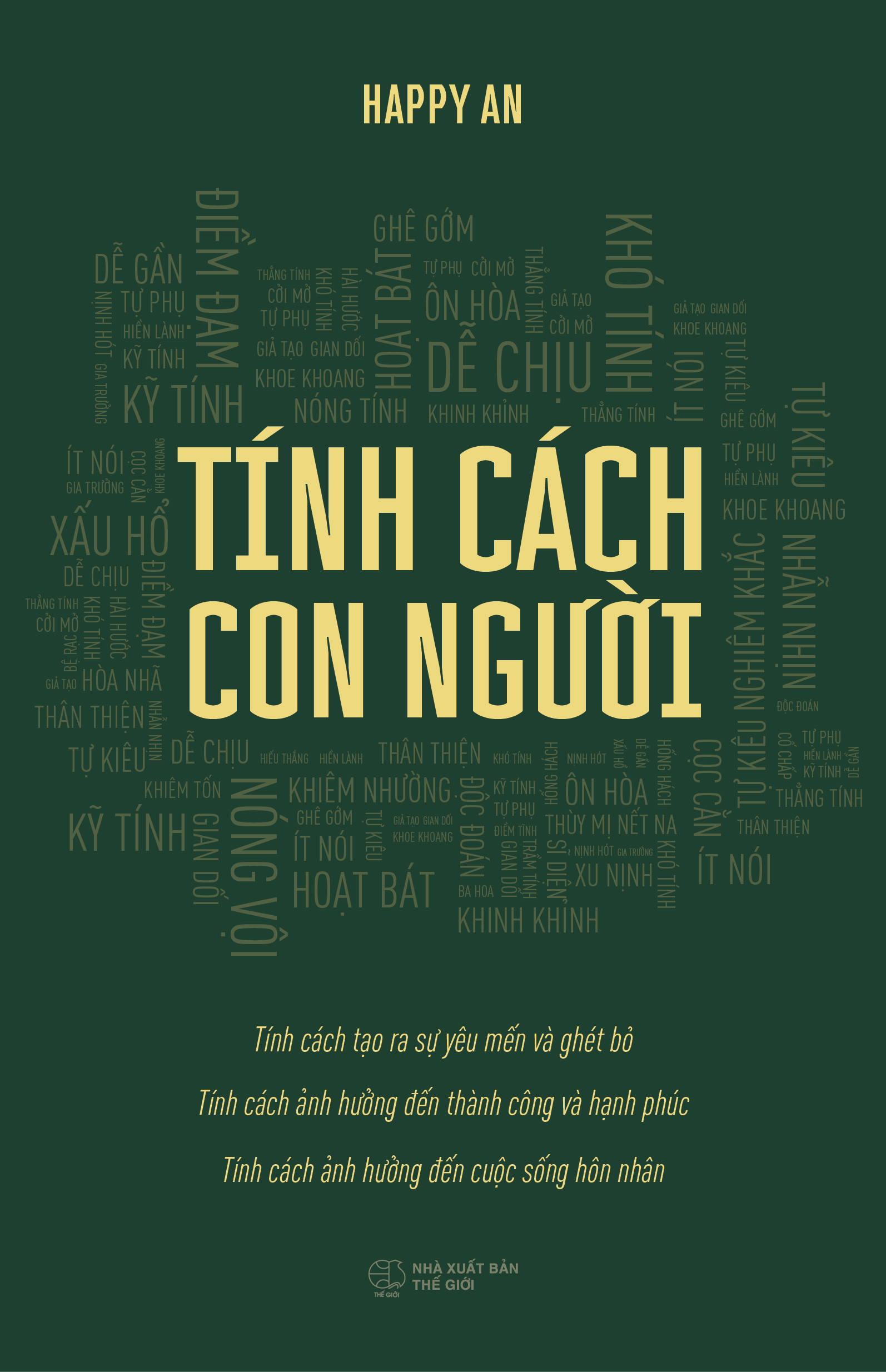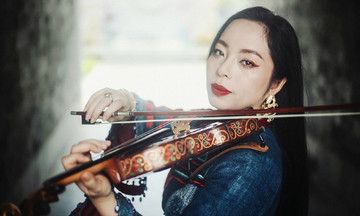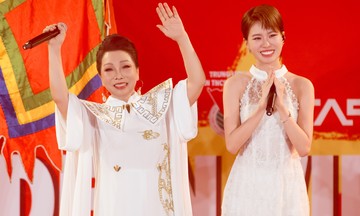The Gioi Publishers released "Human Personality" in July. The 255-page book, rather than delving into academic theory, uses real-world examples to list 200 common personality traits, categorizing them as positive, negative, neutral, and a mix of positive and negative.
Across 10 chapters and four appendices, the author clarifies several key concepts: what personality is, its origins and how it changes, and how it differs from character, habits, and abilities. The book also addresses important questions like: Can personality be changed? How does it affect life, work, and marriage?
Happy An said he conceived the book 9 years ago, drawing on his own experiences. Fresh out of university, he often got involved in debates, eager to participate and see them through, perhaps to prove his knowledge. However, he realized people found him argumentative and disliked him.
After starting his own company and achieving success, the author noticed he had become somewhat domineering, conservative, and especially short-tempered.
He struggled to control his words and actions during these outbursts, damaging relationships. Despite recognizing this flaw and resolving to change, he admitted it was difficult and often felt remorse afterward.
"I observed others who were calm and collected, avoiding arguments or knowing when to disengage, controlling themselves. I admired that and wished I were the same," Happy An said. This led him to reflect on personality, believing it profoundly impacts life, relationships, and personal happiness. He outlined the book in 2017, but only started writing four years later, completing it earlier this year.
 |
The book is distributed online and offline at Fahasa, Phuong Nam, Tiki, Waka, and some social media platforms. Photo: The Gioi Publishers |
The book is distributed online and offline at Fahasa, Phuong Nam, Tiki, Waka, and some social media platforms. Photo: The Gioi Publishers
By examining communication styles and interactions through words, attitudes, and gestures, the author emphasizes personality as a complex combination of nature and nurture, temperament and behavior, instinct and consciousness. This makes it both elusive and fascinating to explore.
The author cites American psychologist Gordon Allport, who identified 4,500 words describing personality traits. The MBTI model categorizes personality into 16 groups, the Big Five into five, the Enneagram into 9, and DISC into four. Happy An divides traits into two categories: individual and group.
The individual section groups traits under 11 themes, arranged in contrasting pairs. For example, "Social Integration and Relationships" includes sociable - detached, friendly - aloof, open - closed, easygoing - meticulous, and peaceful - hot-tempered. Similarly, "Communication and Self-Expression" includes cheerful - quiet, reserved - talkative, mature - immature, discreet - indiscreet, modest - conceited, and romantic - pragmatic.
The group section has 12 groups: extroverted, introverted, friendly - easygoing, demanding - difficult, strong, self-reliant, proactive, passive, realistic - rational, dreamy - delusional, optimistic, and pessimistic.
The author also provides a table explaining personality traits based on dictionary definitions and common understanding.
* Some examples from the explanation table in the book
| No. | Personality Trait | Dictionary Definition | Common Understanding |
| 1 | Conservative | (Advocating) maintaining the status quo, resistant to change and innovation | Clinging to one's opinions, always believing one's opinions and actions are correct |
| 2 | Enthusiastic | Ardent and eager feelings | Willing to participate in something, eager to support or help others selflessly |
| 3 | Affable | Having a gentle and polite attitude | Gentle, polite, and courteous in behavior - showing respect and friendliness in communication |
| 4 | Patient | Enduring, suppressing emotions to avoid conflict | The ability to restrain oneself, control emotions to adhere to morals and rules |
| 5 | Gentle | Kind and good-natured, not harming anyone | Not fierce or scary, a good person, often yielding to others |
| 6 | Short-tempered | Easily angered, difficult to control | Easily agitated, angered, reacts quickly and strongly, lacks patience in situations Unable to control emotions, easily moved in a negative direction, causing unnecessary consequences |
| 7 | Aggressive | Ready to cause harm in a frightening way | Ready to cause harm or damage to others in a frightening way |
The author concludes that personality can change, but it's not easy, quick, or complete. Methods like yoga or meditation can only address surface-level issues (controlling emotions, behavior, reactions); true change comes from self-awareness.
"I hope this book helps readers identify and understand their personality so they can adjust and modify it, leading to better interactions, positive relationships, and freedom from regret or remorse over past behaviors," Happy An said.
The author's real name is Doan Khac Thuat. Originally from Bac Ninh, he has lived in Ho Chi Minh City for nearly 30 years. He holds a bachelor's degree in Business Administration and an MBA from AMA (American Management Association). In 2021, he turned to writing and published "Brand Naming" under the pen name Leader Thanh.
Explaining his new pen name, the author said "An" represents peace and tranquility, while "Happy" speaks for itself. "The name Happy An comes from the aspiration to create truly happy lives, which is also the mission of the website of the same name," he added.
Dong Ve











